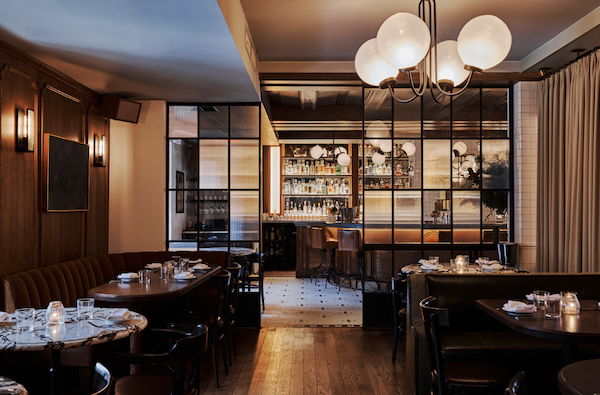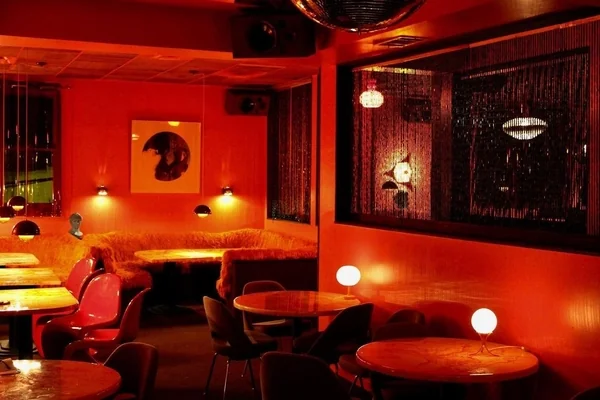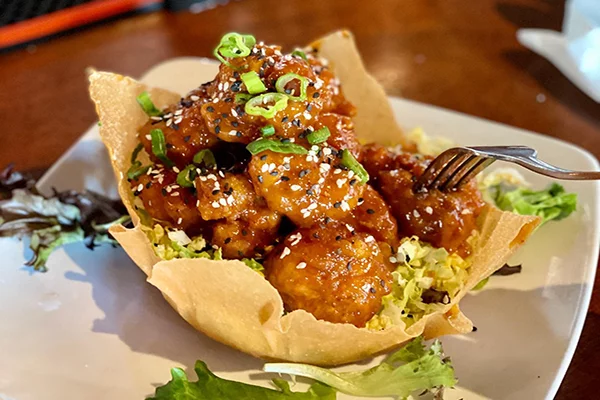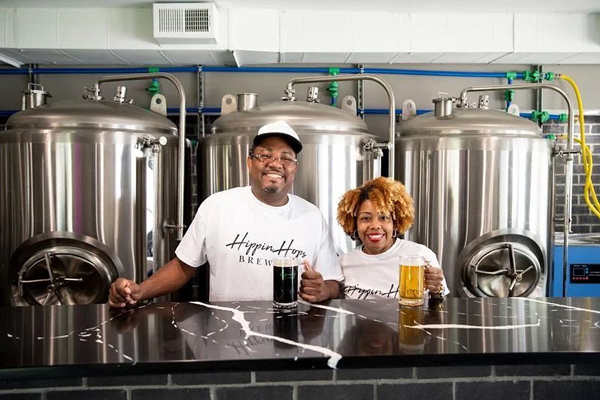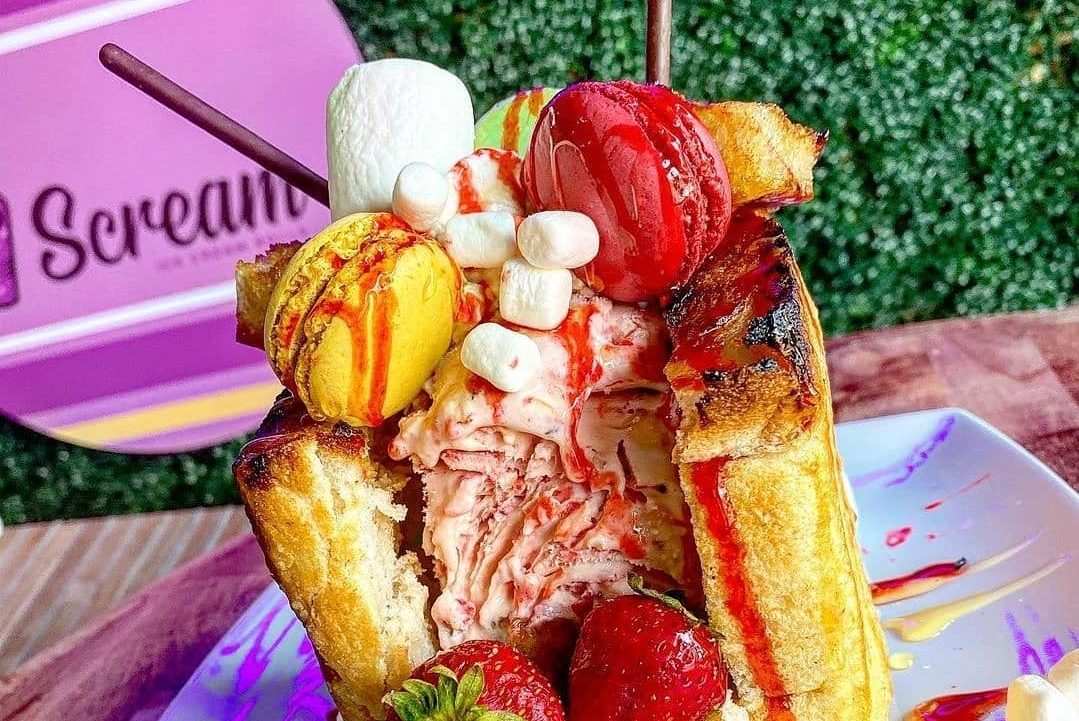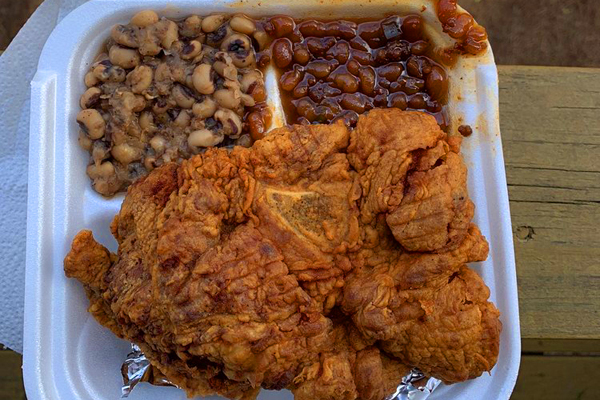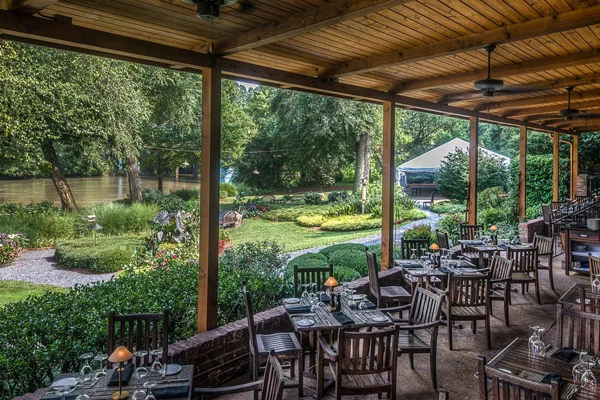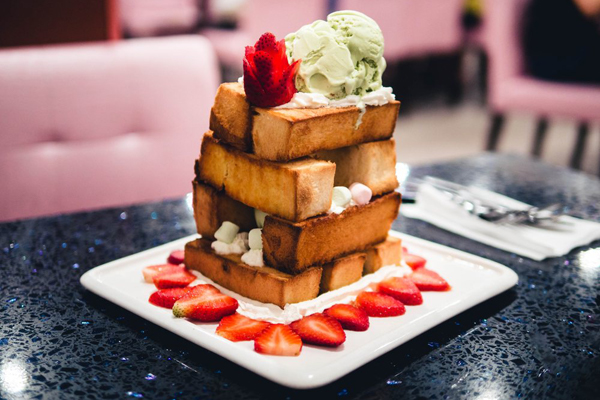Kevin Gillespie on Seasonality and “Modern Southern.”
Kevin Gillespie is probably best known to most as the cheerful red-bearded chef with the pig tattoo from season six of Top Chef, filmed in Las Vegas.
He recently caused a stir with the mission statement for his new restaurant, Gunshow, in Glenwood Park, when he wrote “‘Modern Southern’ glorifies a South I don’t know…one with plantations and cocktails on the lawn.”
Gillespie grew up in a working class Henry County family, and he sees the difference between the “plantations and cocktails” South he mentions in the Gunshow mission statement, and the South that he grew up with. When he says, “We seem to intentionally be overlooking the blue collar portion of the South,” it’s an accusation that has a ring of truthiness about it — it’s almost as though blue collar diners have been consigned to quick-service Hell by restauranteurs. Expanding on his point, the chef says, “The blue collar portion of the South today is not just made up of multi-generational southerners, it’s made up of people from all over the world, people creating their new life for them and their family, in the South. And I want to represent all of those people because I feel more connected to them.”
That theme of being connected to his heritage is something that recurs through our conversation, especially when it comes to questions of what we know as “Modern Southern.” I asked him if it was fair to say that the cuisine as we see it in 2013 was created by outsiders who were building dishes that were how they saw the South, rather than how Southerners see their own region.
“I think that’s an absolutely accurate statement,” he says. It’s something he says has bothered him “pretty much my entire cooking career,” and he even writes about it in his book, Fire in My Belly.
As he tells it, he was “working at the Ritz-Carlton and our restaurant was ‘Modern Southern.’ I realized after a day or two that I was actually the only Southern person who was working there, and I was an intern, so I thought that might have been kind of a little bit of a crock of s***.”
It’s easy to understand Gillespie’s ire at the cuisine he grew up with being usurped by outsiders and presented as “Modern Southern.” To begin with, if you’re talking about modernizing something you’re already implying it’s in need of modernization. And to extend that point, when it comes to cuisine, Gillespie says, “if you’re going to modernize anything you must first approach it with a little bit of revelry for the tradition that exists. You have to look at it with pride and say ‘I understand where this came from; and I think where it came from is great, but I am going to evolve it because that is the natural evolution of who I am and where I am right now in my life cooking.'”
It’s really a matter of respect for this Georgia boy. “I don’t consider myself qualified to modernize Japanese cuisine,” he says, “and the reason for that is I’m not Japanese. It’s not something that’s ingrained in me. I didn’t grow up in Japan, or I haven’t spent the majority of my professional life being ensconced within its culinary heritage.”
His logic is sound, and Kevin can acknowledge the irony of his situation: “It’s funny for me to say I have so much distaste for ‘Modern Southern’ cooking when I’m probably in a better position to modernize it than many people would be; and I want to, but I prefer to think we’re progressing it and not modernizing it.”
So what does this Top Chef alum think when he thinks of Southern cuisine?
“For me, when I think of the South, I think of the commitment to seasonality. My family is from the mountains and we grew up growing nearly everything we ate. You never broke that idea of seasonality because you didn’t go to the grocery store, because you grew what you had and you ate what was in season.”
For a man who made his name with his pork preparations, he has some ideas that might surprise his fans. “When I think of the south I think of people who are committed to vegetable cookery, and that’s something that blows people’s minds. ‘What do you mean, you guys love vegetables?’ We probably ate ten times the amount of vegetables as we did meat, but that gets skewed because of the other practices of cooking in the south, the more popular things.”
It doesn’t take a genius to do the math that he’s talking about fried chicken and any number of smoked meat dishes, including the kinds of foods that catapulted him to national attention on Top Chef.
“More than anything,” he says, “when I think of the spirit of cooking in the south I was always taught that whatever your ingredient was that you didn’t waste it, and so somehow or another you used the whole thing; and that you gave it the respect that it deserved, so you did whatever was necessary to take something that was good and make it great.”
The conversation about ‘Modern Southern’ comes back around to books. “In my mind the history of Southern cuisine is a book that still has lots of blank pages in the back,” he says, “We’re just continuing to write in them.”
Gunshow is going to serve Southern food his way. The way we all fell in love with when we saw Chef Kevin on Top Chef. “It makes sense that what I do now would be called Southern food because I’m from the South, and we’re in the South, and we use only Southern ingredients,” he says, but by now, Southern doesn’t sound like a dirty word. It sounds like a celebration.
“There’s a story of the South as it exists right now that’s really interesting,” he says. “We’re overlooking some things. We seem to be intentionally overlooking the blue collar portion of the South and the blue collar portion of the South today is not just made up of multi-generational Southerners, it’s made up of people from all over the world, people creating their new life for them and their family, in the South.”
Comedian Ron White calls them the other Red, White, and Blue: Redneck, White Trash, Blue Collar. They’re the people too often consigned to eating in fast-food places, and lower-order chains. They’re the people who mow yards, set up your cable, and fix your car. They work hard for low pay, and a $20 entree is a treat, not just because it’s Thursday. And they’re the people Kevin thinks of when he thinks of the South.
“I wanna represent all of those people because I feel more connected to them, frankly.”
As a final nod to his heritage and his place in it, Gillespie says, “I cook in the spirit of the South every day. I don’t have to replicate dishes that we’ve done before for it to be Southern.”


